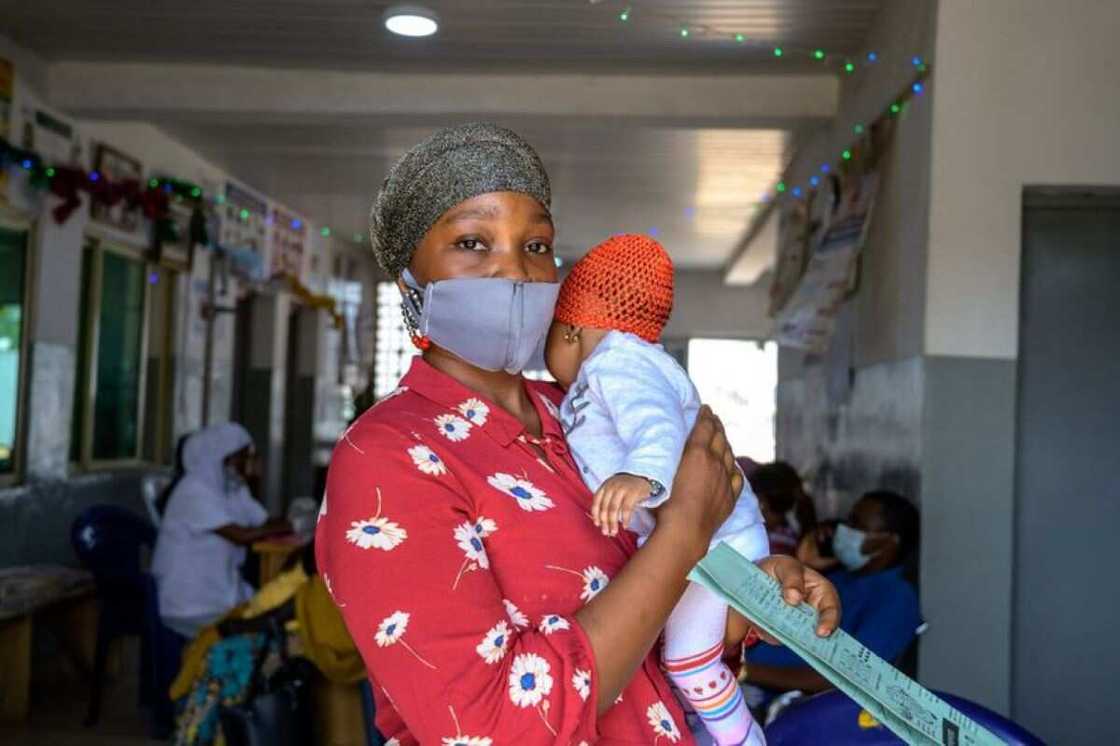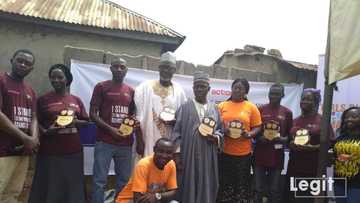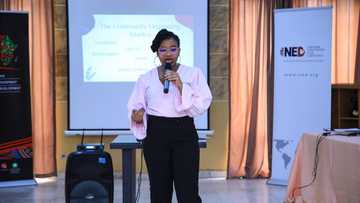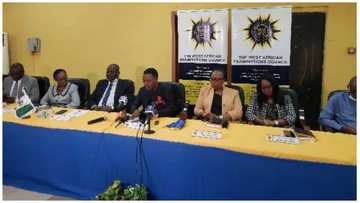HIV/AIDS: 490 Nigerian Babies Born In 2020 Tested Positive For Virus, Report Says
- Women across Nigeria have been advised to ensure their children are tested for HIV at birth and continually over their childhood life
- This advice was given by Dr Gbenga Ijaodola, a team lead, at the National AIDS and STIs Control Program (NASCP) of the Federal Ministry of Health
- Ijaodola said most babies are infected with HIV because their mothers fail to access antenatal care facilities across the country
A report has said that two per cent of babies born in Nigeria in 2020 tested positive for HIV/AIDs.
The report from the National AIDS and STIs Control Programme was shared by Dr Gbenga Ijaodola, an assistant director of the National Prevention of Mother-to-Child Transmission (MTCT) of HIV at a three-day workshop in Calabar, Cross River state.
The workshop organised by UNICEF and the Child Rights Information Bureau of the ministry of information was organised to reinvigorate and produce a work plan for Journalists Alliance for PMTCT in Nigeria (JAPiN).

Read also
‘Amaechi must go’: Families of kidnapped Kaduna train passengers call for minister’s dismissal

Source: Facebook
Details on the report show that in 2020; 27,909 infant DNA samples were tested, 19,715 were tested and 409 babies results came out positive and in 2019; 26,247 infant DNA samples were collected, 19,947 were tested and 833 were positive.
PAY ATTENTION: Subscribe to Digital Talk newsletter to receive must-know business stories and succeed BIG!
Similarly, in 2018, a total of 22,977 infant DNA samples were collected, 17,488 were tested and 808 positive results were recorded while in 2017, a total of 19,927 infant DNA samples were collected, 16,272 samples were tested and 1,359 samples came out positive.
Ijaodola said a large number of these babies contracted the virus mostly because their mothers failed to access facilities for antenatal care and ended up either delivering at home or other birthing locations.
He said the Federal Ministry of Health is collaborating with partners to identify key stakeholders who focus on encouraging women.
Also, stakeholders are working together with the ministry to ensure the women present their babies at facilities to undergo HIV testing at birth, and after six weeks for a retest of both positive and negative newborns.
Further speaking, the health expert noted that while some babies might not exhibit symptoms of HIV infection until after four years of their life, there is a need to activate a scale-up of the plans on the ground to capture a longer period of children’s lives.
For Ijaodola some of these activities where the children could be captured and retested for the virus include; immunisation, nutrition visits and when there are taken to facilities for different service delivery.
Nigeria’s Focus on Eliminating MTCT of HIV
Also, addressing efforts made by Nigeria to eliminate mother-to-child transmission of HIV, Ijaodola said the Nigerian government is highly invested in the global drive for the EMTCT.
He said:
“What determines the health of every nation is how they take care of their women and children. And the joy of every mother is that her baby comes out clean devoid of any infection, HIV inclusive.”
“That is the vision and that is what we are trying to do. Some countries have been able to do it, an infant from what I heard Uganda is on the second level of validation.”
“By the time they finish the second and the third level, Uganda is going to be the first African country that can say they’ve been able to eliminate mother-to-child transmission.”
Global Target for the Elimination of MTCT
Ijaodola said to meet up with the global target, the National Strategic Plan mandates 95 per cent of all HIV positive pregnant and breastfeeding mothers receive antiretroviral therapy; 95 per cent of all HIV-exposed infants receive antiretroviral prophylaxis and 95 per cent of all HIV-exposed infants has early infant diagnosis within 6-8 weeks of birth.
Also, the Elimination of MTCT target by the World Health Organisation (WHO) popularly referred to as the yellow book projects 95 per cent of ANC coverage, 95 per cent testing coverage for pregnant women and 95 per cent of PMTCT coverage.
In addition, the health expert listed some of the challenges hindering the drive to eliminate mother-to-child transmission of HIV in Nigeria.
These are poor access to a formal public health sector, the fact that only about a third of pregnant women in Nigeria are able to access PMTCT service and the lack of a comprehensive data reporting system to track cases of PMTCT.
Others are the failure of states to respond to the provision of adequate funding for PMTCT program activities, ineligible improvement of antenatal care and facility delivery uptake, low paediatric HIV case identification and poor linkage to care and treatment for children living with HIV.
Also speaking, Dr Geoffrey Njoku, UNICEF’s communication specialist said the importance of the workshop is to bring the issue of MTCT of HIV to the front burner.
Njoku said that while other aspects of HIV cases and transmission are widely reported across various media, there is a need to note that the elimination of MTCT is highly important.
He called on journalists on the health beat to continue to press on these issues to ensure that babies are delivered with a reduced risk of contracting HIV from their mother or other sources at birth.
Meanwhile, Legit.ng previously reported that the Nigerian government has moved to curb new HIV infection among those people who inject drugs.

Read also
Traditional leader, son, 5 others bag awards for standing against gender-Based Violence in Abuja community
The director-general of the National Agency for the Control of AIDS, Gambo Aliyu, said a new evaluation report for the country would help reduce HIV transmission among 44,000 PWIDs.
Aliyu also said that the report is part of NACA's effort to disseminate and make relevant information that will enable up-scaling of HIV and hepatitis prevention and care efforts available among persons who inject drugs (PWIDs).
Source: Legit.ng





